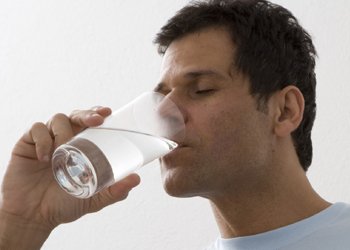A study in the United States has found people living near shale gas wells are at “higher risk” of contaminated drinking water.
Shale gas exploration has sparked a huge industry in North America and is predicted to make the US a net exporter of gas in a decade. The industry has written off footage showing people setting fire to water from their taps in Pennsylvania, blaming it on naturally high levels of methane in the region.
However scientists now claim to have found a link between drilling and “stray gases”. This could in turn explain the incendiary accounts captured on video.
The team from Duke University looked at 141 drinking water samples from private water wells across northeastern Pennsylvania’s gas-rich Marcellus Shale basin, a hotspot for shale gas exploration.
They found homes within a kilometre of a shale gas well had methane concentrations six times higher and ethane concentrations 23 times higher than other wells. Propane was detected in 10 samples from homes within a kilometre of drilling.
Theirs is the first study which offers direct evidence of ethane and propane contamination. Two previous Duke-led studies found direct evidence of methane contamination in water wells near shale-gas drilling in northeastern Pennsylvania, as well as possible hydraulic connectivity between deep brines and shallow aquifers.
A third study, conducted with US Geological Survey scientists, found no evidence of drinking water contamination from shale gas production in Arkansas. None of the studies found evidence of current contamination by hydraulic fracturing fluids.
Robert B. Jackson, a professor of environmental sciences at Duke’s Nicholas School of the Environment said: “The methane, ethane and propane data and new evidence from hydrocarbon and helium content, all suggest that drilling has affected some homeowners’ water. In a minority of cases the gas even looks Marcellus-like, probably caused by poor well construction.”
Avner Vengosh, professor of geochemistry and water quality at Duke’s added: “Our studies demonstrate that the integrity of gas wells, as well as variations in local and regional geology, play major roles in determining the possible risk of groundwater impacts from shale gas development. As such, they must be taken into consideration before drilling begins.”
The study was published in the Proceeding of the National Academy of Sciences yesterday.





